The EU co-funded project “SGS – Sport for all Genders and Sexualities”, aiming to promote an inclusive sports culture for all persons regardless of sexual orientation and gender identity in European grassroot sports, had reached another big milestone. A scientific research in the framework of the project with the main focus on providing insights into the situation of women and LGBT+ individuals in organized grassroots sports across Europe, which was conducted by German Sports University.
Aim of the Research
The primary goal of the research was to identify and understand the prevailing gender norms and stereotypes in organized sports and their impact on the discrimination and exclusion of girls, women, and LGBT+ individuals in grassroots sports.
Participants
The research engaged a diverse group of 2,832 respondents involved in organized grassroots sports, including athletes, coaches, board members, and volunteers. The sample of this study includes respondents from Germany, Austria, Spain, United Kingdom and Italy. The participants also reflect the diversity of European sports, with a range of sexual orientations, gender identities and levels of sports involvement, highlighting the inclusivity and variety within the sporting community.
Main Findings
By delving into the societal, organizational, and individual levels of organized sports systems, this study sheds light on the challenges faced by these communities. The main highlights of the study are:
- High agreement (77% to 84%) indicates prevalent discrimination against women, lesbian/bisexual women, gay/bisexual men, and trans/non-binary individuals, highlighting deeply ingrained biases and stereotypes.
- While there's progress in promoting gender equality (79%), only 56% advocate for diversity in sexual orientation, and 43% for diversity in gender identity. A smaller percentage utilizes inclusive language (40%) or has anti-discrimination policies (40%), with just 25% having an anti-discrimination function.
- Witnessed Discriminatory Language: In the last year, respondents witnessed sexism (46%), homonegativity (28%), and transnegativity (16%) in their sports activities, shedding light on the persistence of discriminatory behavior.
- About 10% experienced negative incidents in their main sports, including sexist and homo-hostile expressions, unfair treatment, and even physical violence, underscoring the personal toll of discrimination.
- In the sample, 9% of participants are choosing not to participate in sports due to their sex, sexual orientantion or gender identity. Notably, 73% of these respondents identify as heterosexual, and 98% identify as cisgender. This finding underscores the significance of the issue, as it affects not only trans and LGB athletes but also cisgender and heterosexual athletes (9% of cis women feel excluded from sport)
Have a look at the complete research document attached for further information, more in-depth insights and findings.

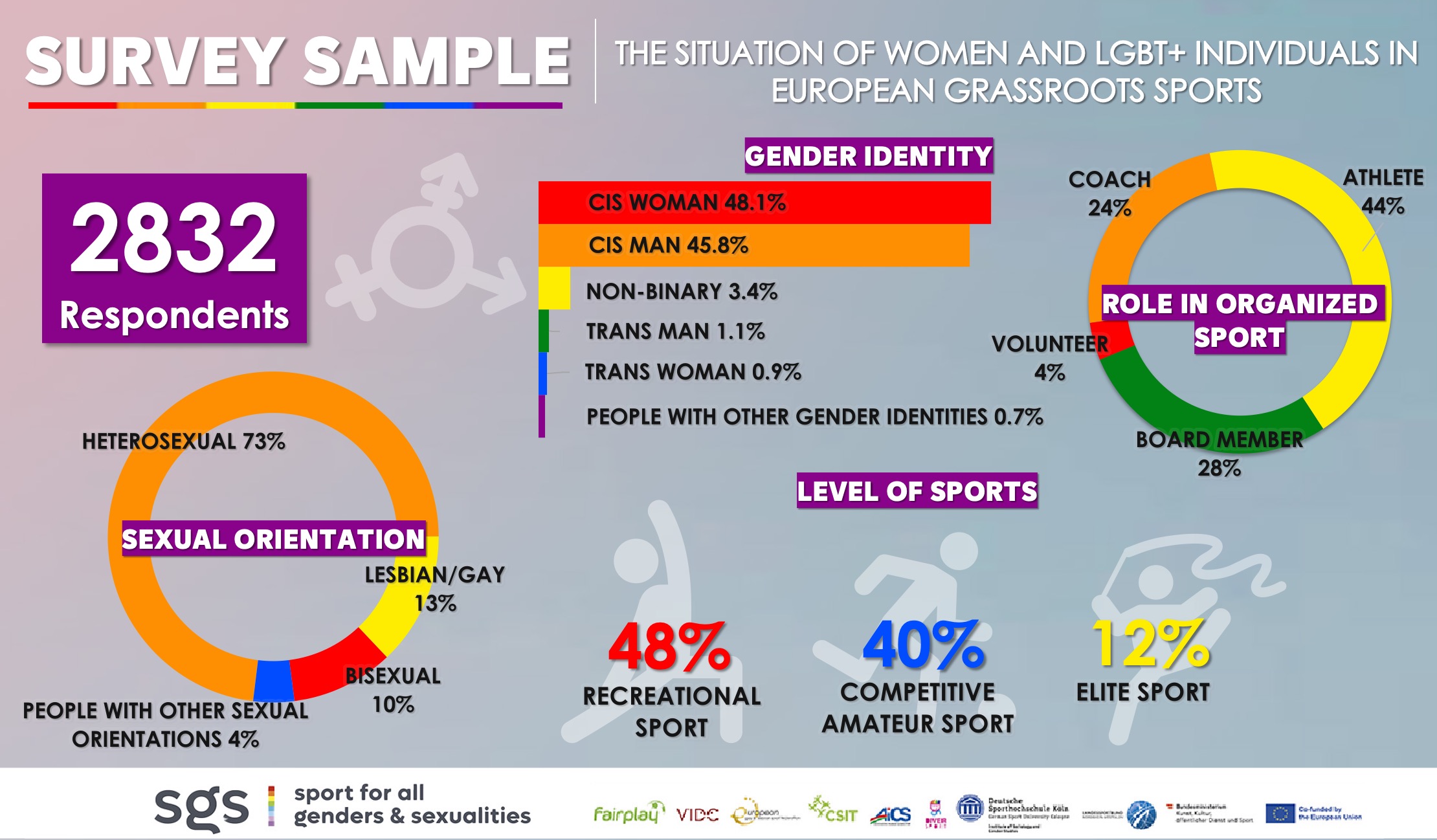
The sample consists of 2832 respondents. Among them ¾ self-identify as heterosexual, 13% as gay or lesbian and 10% as bisexual. Slightly under 50% of the respondents self-identify as women and men and 3% as non-binary. Almost half of the respondents are athletes and around ¼ coaches and board members/managers. The vast majority of the athletes and coaches participate in recreational (48%) or competitive amateur sports (40%), while 12% participate in elite sports.
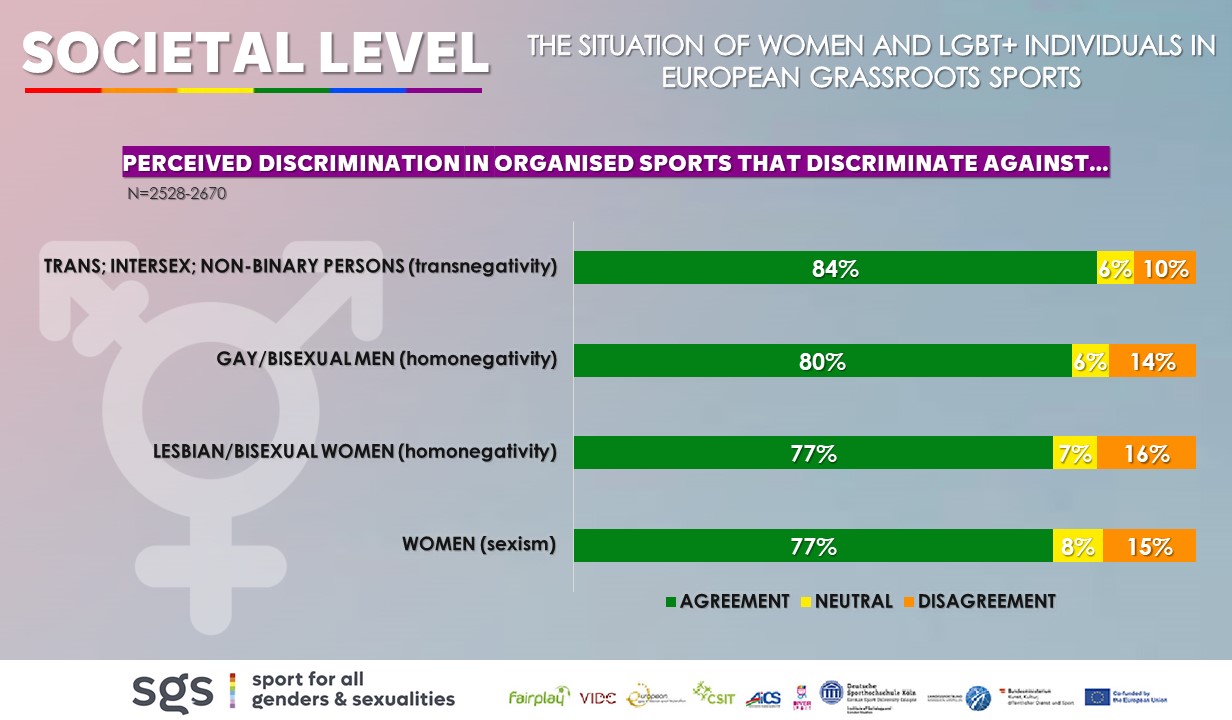
The respondents are quite sensitive towards discriminatory attitudes and behaviour against all groups in organised sports. With 84%, the agreement is highest for perceived discrimination against trans, intersex and non-binary persons, followed by gay/bisexual men and (lesbian/bisexual) women.
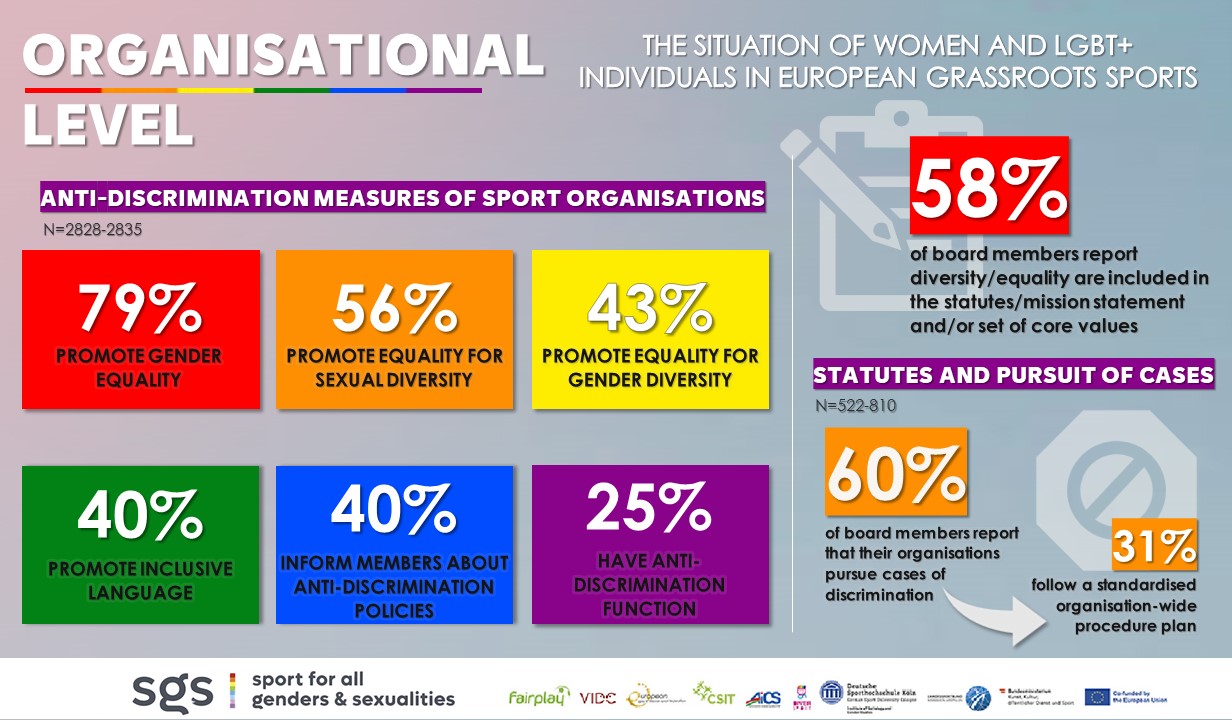
In the respondents’ sports organisations, promotion for gender equality is quite widespread (79%), while far less respondents report that their organisation promotes sexual diversity (56%) and or gender diversity (43). 4 out of 10 organisations promote inclusive language and inform their members about anti-discriminations policies, while only ¼ have anti-discrimination functions in their organisations.
About 60% of the board members and managers report that diversity or equality are part of their organisations’ statutes or values and that cases of discrimination are pursued. Among them not even 1/3 follows a standardised organisation-wide procedure plan.
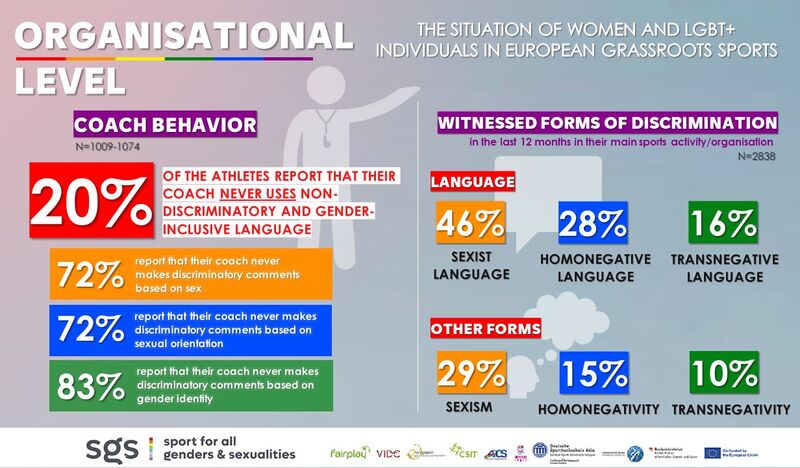
20% of the athletes report that their coach is not at all committed to non-discriminatory and gender-inclusive language, while more than 70% report that their coach never makes discriminatory comments based on sex, sexual orientation or gender identity.
Witnessing discriminatory language is more common than witnessing other forms of discrimination in the respondents’ main sports activity/organisation, whereby sexism is most often witnessed in the last 12 months, followed by homonegativity and transnegativity.
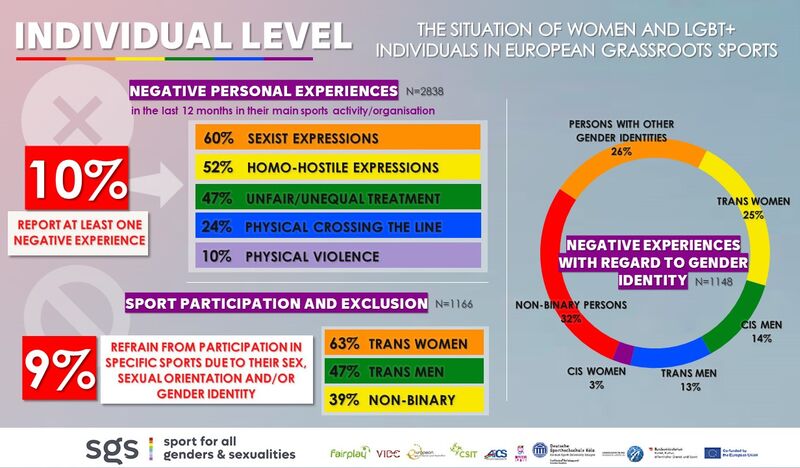
10% of the respondents report at least one negative experience in their main sports activity/ organisation in the last 12 months, with sexist expressions, homo-hostile expressions and unfair/unequal treatment being most often mentioned. ¼ of the respondents have experiences with crossing the line physically and 10% with physical violence. Non-binary persons are the most vulnerable group when it comes to negative experiences in organised sports, followed by persons with queer identities and trans women.
9% of the athletes consciously refrain from certain sports of interest due to internalized fears of being discriminated against. Important differences by gender identity occur: non-cis athletes are particularly affected with 63% of trans female athletes refraining from sports of interest, followed by trans male athletes (47%) and non-binary athletes (39%).
VISIT THE PROJECT PAGE HERE
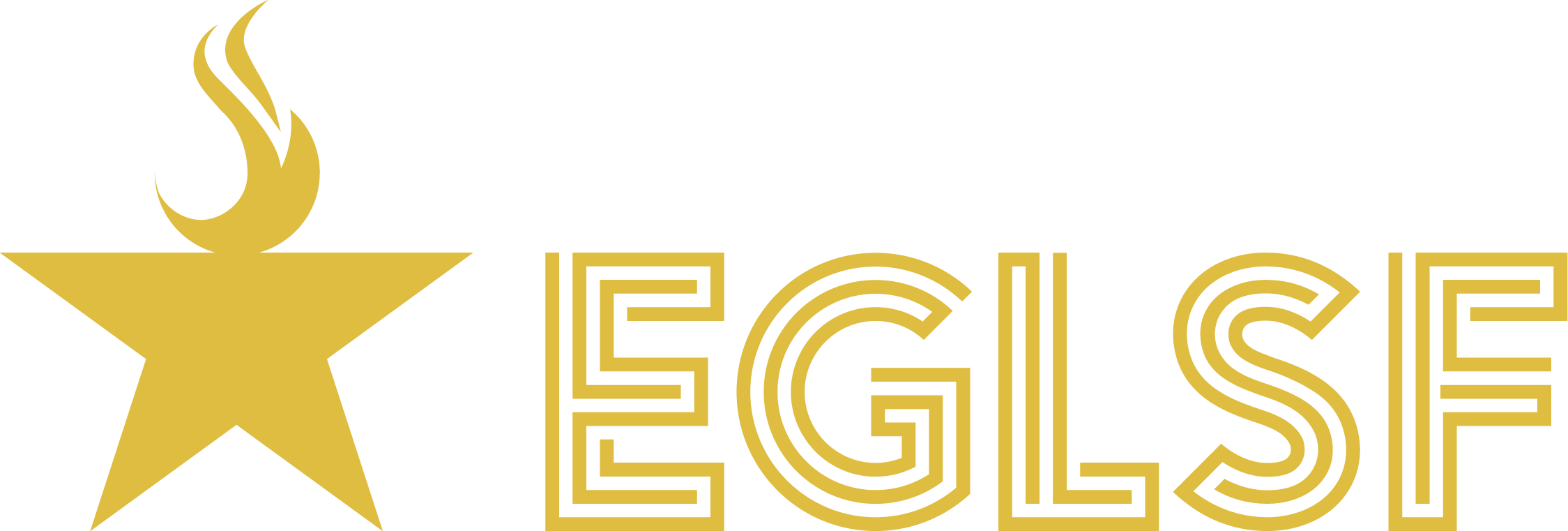
Leave A Comment